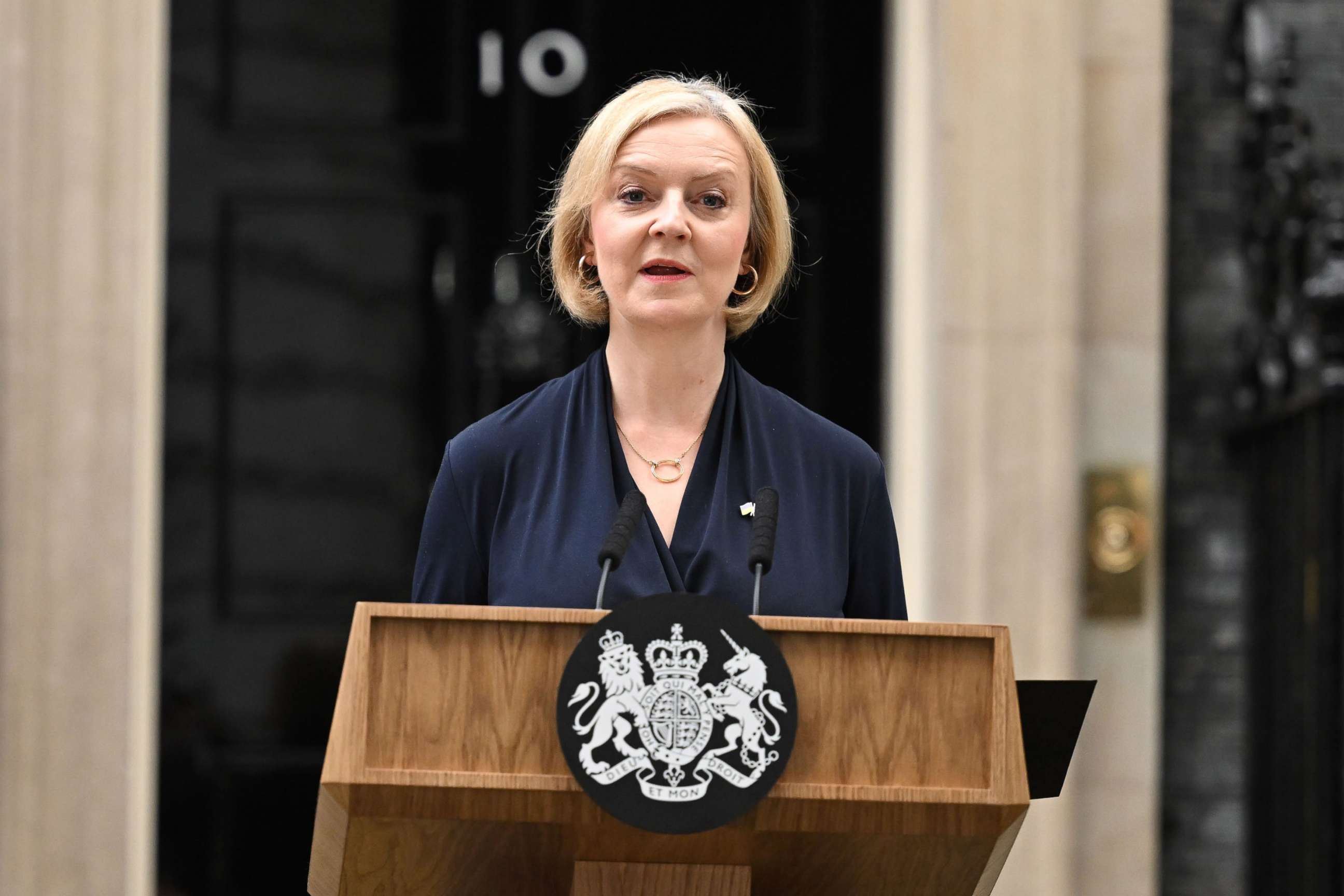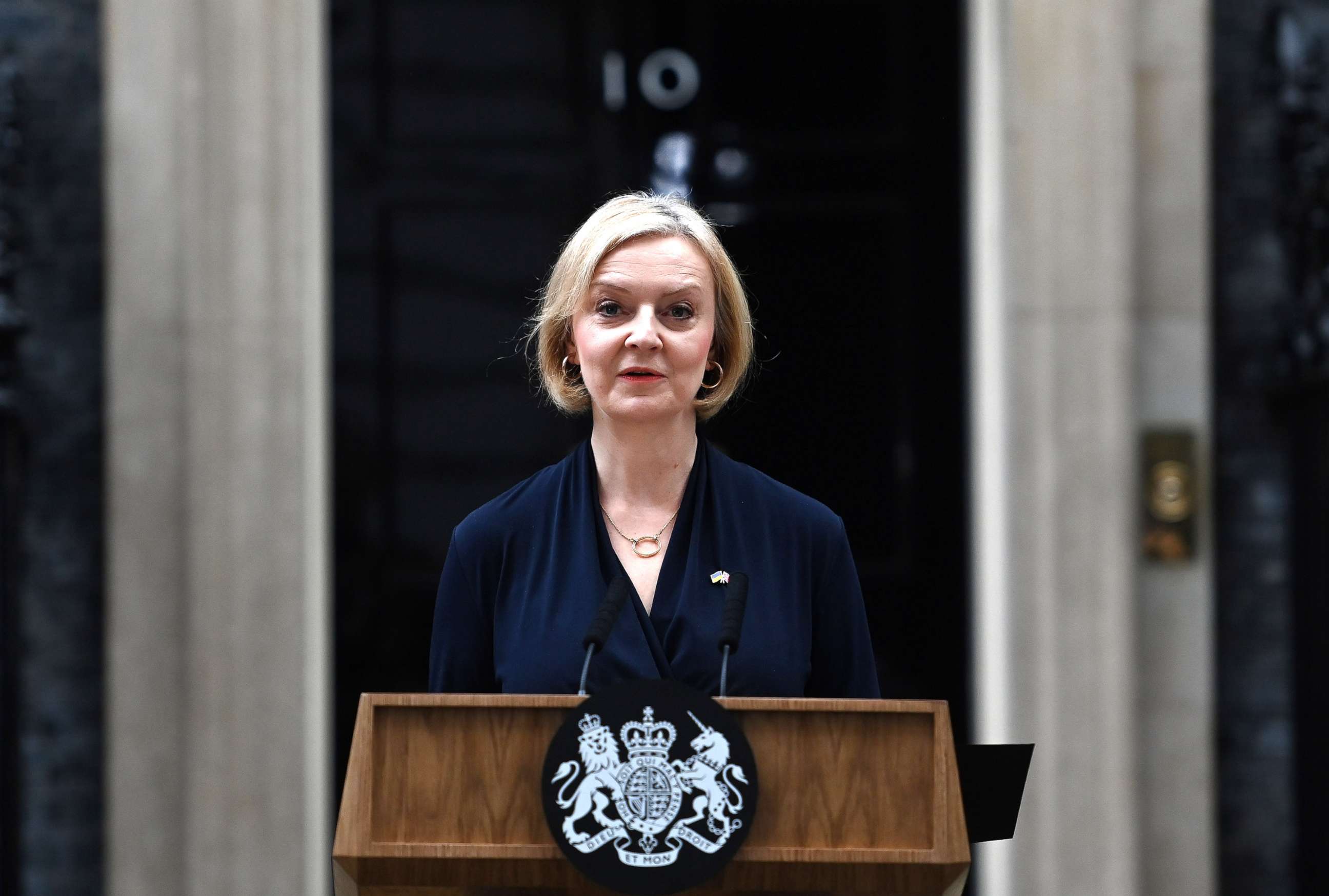UK Prime Minister Liz Truss announces resignation
LONDON -- U.K. Prime Minister Liz Truss announced her resignation on Thursday.
Truss, who only became prime minister on Sept. 6, will be the shortest serving prime minister in modern political history.
"I cannot deliver the mandate on which I was elected by the Conservative Party," Truss said.

Her resignation follows weeks of political and economic crisis, after the government introduced a new "mini-budget" which was roundly criticized.
The leader of the opposition Labour Party, Sir Keir Starmer, has called for a general election. The Conservative Party, then under the leadership of Boris Johnson, won a large majority in the last general election in 2019.
Whoever is chosen as Truss' successor from the Conservative Party ranks will become the fifth prime minister since the U.K. voted to leave the EU in the Brexit referendum of 2016 in an unprecedented period of turbulence in British political history.
From outside the steps of Number 10 Downing Street, Truss said a leadership election would take place over the next seven days.
Truss' budget was roundly criticized by opposition figures and economists, as well as sparking rare criticisms of domestic policy from President Joe Biden and the International Monetary Fund.

Biden released a statement after Truss announced her resignation, saying, "The United States and the United Kingdom are strong Allies and enduring friends -- and that fact will never change. I thank Prime Minister Liz Truss for her partnership on a range of issues including holding Russia accountable for its war against Ukraine. We will continue our close cooperation with the U.K. government as we work together to meet the global challenges our nations face."
While the chancellor in charge of the budget, Kwasi Kwarteng, resigned last week and his successor immediately set about reversing the tax cuts that had been promised, the damage to Truss' authority ultimately proved terminal.
Tensions within the party reached a boiling point on Tuesday night ahead of a parliamentary vote that was seen as a confidence vote in the prime minister. Reports emerged that some lawmakers were manhandled by government ministers to get them physically to cast their ballots in the panic that ensued after more ministers resigned.
"It was very aggressive, very angry -- there was a lot of shouting. There was at least one hand on another MP and, to me, that was clear bullying and intimidation," a Labour opposition politician who witnessed the incident said.
Rishi Sunak, Truss' former leadership rival and Jeremy Hunt, the recently installed chancellor, are the early favorites to succeed the prime minister, observers said on Thursday.
Meanwhile, the former Prime Minister Boris Johnson, who resigned in scandal this summer, has emerged as a preferred candidate among certain lawmakers to make a sensational, if unlikely, return to the frontline of British politics.
ABC News' Molly Nagle contributed to this report.




